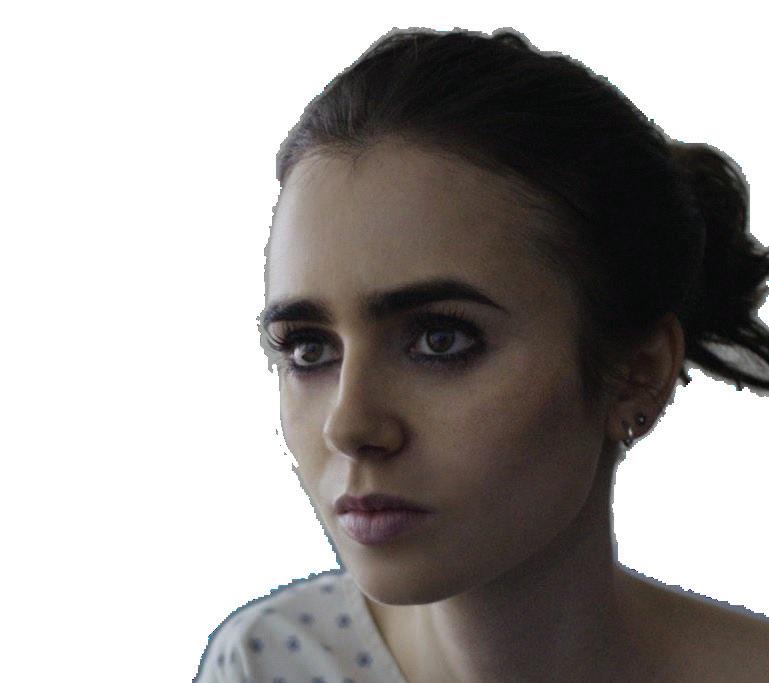
3 minute read
The problematic representation of eating disorders in the film industry
Content warning: eating disorders
Eating disorders are undeniably a major problem facing the world today, with the number of individuals struggling constantly increasing. In the UK, it is estimated that around 1.25 million people in the UK have an eating disorder and a large percentage are aged 12-25, although it must be noted that eating disorders are hard to define and due to the sensitivity of the subject data can be unreliable. My question, however, is whether this crisis is worsened by the showcasing of it on the big screen, or whether the representation of eating disorders actually helps those that struggle.
Advertisement
During my early teenage years, the Netflix film To the Bone was released. It starred one of my favourite actresses of the time- Lily Collins, so me and my sisters were convinced to watch. At fourteen I was very naïve, and I didn’t know much about mental health problems, but the film immediately struck a chord with me. Collins depicted 20-year-old anorexia sufferer Ellen. I had never seen her play such a raw, truthful, yet haunting role. The film certainly didn’t shy away from the realities of disordered eating, with one character losing out on his dream of being a ballet dancer, and another losing her baby. Of course, these are real-life tragedies that happen every day, and so there is an argument that they need to be given attention in the media. To the Bone, to its credit, also doesn’t intentionally glamourise mental health issues. The film makes it blatant that being sick is not a good thing. However, even at age fourteen, I couldn’t help but shake the feeling that there was something dangerous about this film.
Does the film play a part in encouraging audiences to practice harmful behaviours?
Firstly, there is an irony. It calls itself out by making a key part of Ellen’s storyline dealing with the guilt of releasing Tumblr art that influenced a young follower of hers to take her life. We must consider whether films like To the Bone may lead to similar results. Does the film play a part in encouraging audiences to practice harmful behaviours by drawing attention to them? It is definitely not incomparable that films like this one may trigger those who already have problems with food. It is hard to know where the line is, as eating disorders are very complex. It is a known fact that anorexia is particularly competitive and so by seeing characters starve themselves, count calories etc., it may lead those in recovery to relapse. Although, if you’re an individual that has never suffered from an eating disorder, films like To the Bone may be a useful and accurate insight into those that are facing challenges with eating. For example, To the Bone shed light on how disordered eating is often caused by underlying issues that have nothing to do with appearance, such as family problems. These films may instil some empathy and understanding in audiences. Additionally, I’m glad that To the Bone ended with Ellen finally choosing to take recovery seriously, sending a positive message and encouraging people to seek help. feel less alone. I would, however, encourage those who are not in the best head space to not watch anything that may be damaging.

The Whale, released more recently, features Charlie who suffers from a binge eating disorder. Consequently, Charlie becomes hugely overweight to the point that his life is at risk. Some reviews reflect offense at the title and the storyline in general. They argue that the film is fatphobic and dehumanizing. Charlie’s life is essentially portrayed as being joyless because of his weight and some are tired of seeing fat people depicted in this light. Charlie also forgives the abuse that others direct at him, which can send the wrong message. Others see the film as generating compassion for those that are suffering, with watchers commenting on how they fled the cinema in floods of tears.
If you are struggling with disordered eating, here are some helpful resources:
Eating Distress North East (EDNE) - 0191 221 0233 or email enquiries@edne.org.uk
Beat - helpline 0808 801 0677 (open 365 days a year from 9am-midnight during the week and 4pm-
It’s evident that films revolving around disordered eating are subjective. They can cause a lot of harm, but they can do a lot of good in terms of raising awareness and making sufferers










